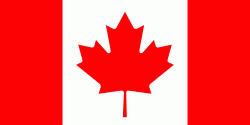Elliot Lake (Elliot Lake)
Elliot Lake is a city in Algoma District, Ontario, Canada. It is north of Lake Huron, midway between the cities of Sudbury and Sault Ste. Marie in the Northern Ontario region. Once dubbed the "uranium capital of the world," Elliot Lake has since diversified to a hub for forest harvesting, mine reclamation expertise, and advanced manufacturing. Elliot Lake is now known as a place for affordable retirement living, waterfront cottage lots and as a four-season destination.
Prior to the settlement of the city, a seasonal Ojibwa village extended along the lake's shoreline near the present hospital.
The town takes its name from the lake. There is no official record of origin of name; the earliest appearance is on the Dominion map of 1901. Folklore suggest it was named for a logging camp cook who drowned in the lake. The townsite name was approved on August 14, 1952. Elliot Lake was incorporated as a city in 1990.
Prior to the settlement of the city, a seasonal Ojibwa village extended along the lake's shoreline near the present hospital.
The town takes its name from the lake. There is no official record of origin of name; the earliest appearance is on the Dominion map of 1901. Folklore suggest it was named for a logging camp cook who drowned in the lake. The townsite name was approved on August 14, 1952. Elliot Lake was incorporated as a city in 1990.
Map - Elliot Lake (Elliot Lake)
Map
Country - Canada
 |
 |
| Flag of Canada | |
Indigenous peoples have continuously inhabited what is now Canada for thousands of years. Beginning in the 16th century, British and French expeditions explored and later settled along the Atlantic coast. As a consequence of various armed conflicts, France ceded nearly all of its colonies in North America in 1763. In 1867, with the union of three British North American colonies through Confederation, Canada was formed as a federal dominion of four provinces. This began an accretion of provinces and territories and a process of increasing autonomy from the United Kingdom. This widening autonomy was highlighted by the Statute of Westminster 1931 and culminated in the Canada Act 1982, which severed the vestiges of legal dependence on the Parliament of the United Kingdom.
Currency / Language
| ISO | Currency | Symbol | Significant figures |
|---|---|---|---|
| CAD | Canadian dollar | $ | 2 |
| ISO | Language |
|---|---|
| EN | English language |
| FR | French language |
| IU | Inuktitut |















